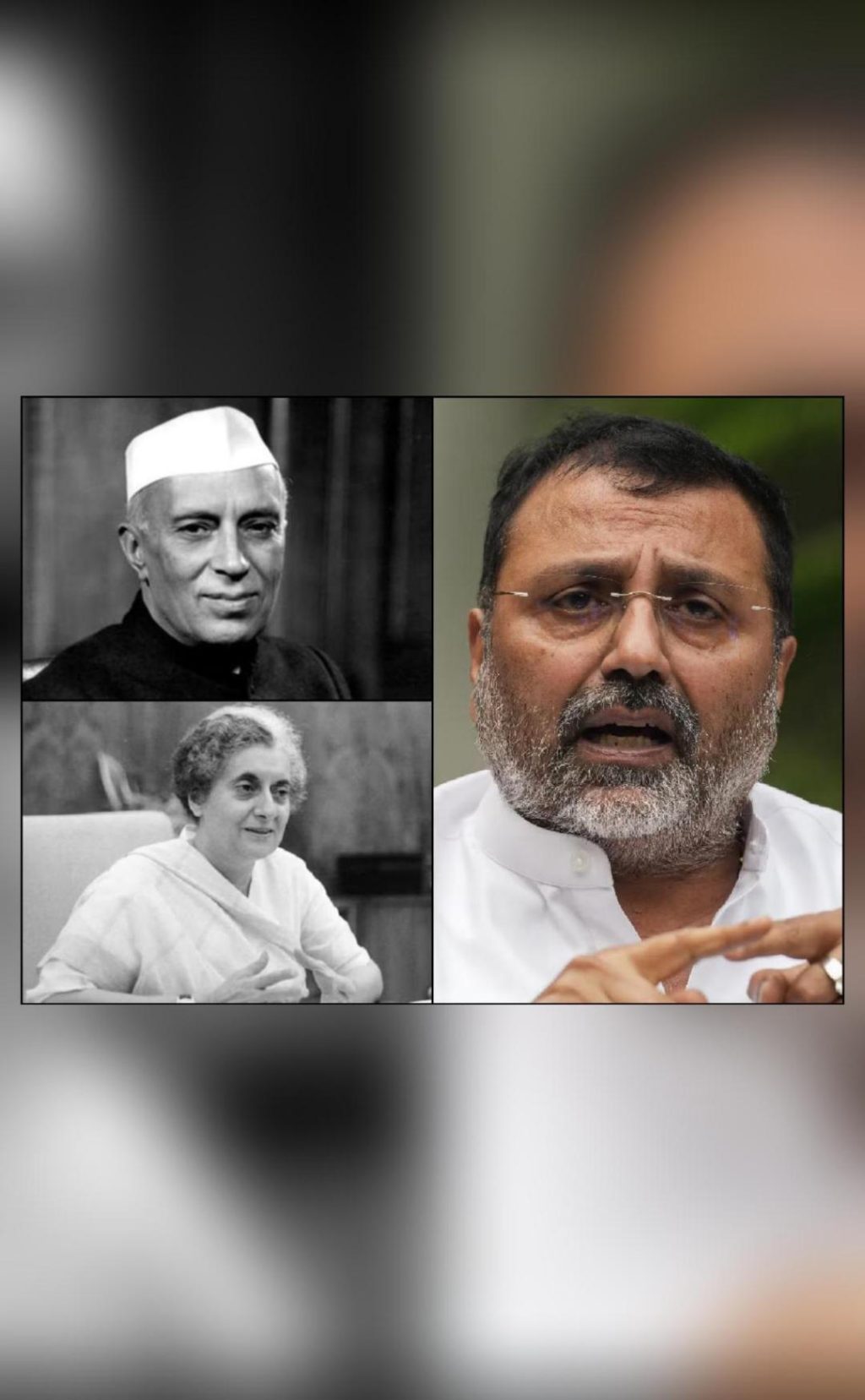
Nehru & Indira drove away Intel from India; it went to China: BJP
The world of technology and business is replete with stories of missed opportunities and what-ifs. One such fascinating tale has emerged from India, where a Bharatiya Janata Party (BJP) MP has claimed that India’s first Prime Minister Jawaharlal Nehru and his daughter Indira Gandhi drove away semiconductor companies like Intel and Fairchild from the country, forcing them to set up shop in China instead. This astonishing claim has sent shockwaves across the Indian tech community, prompting a wave of debate and analysis.
The claim was made by Nishikant Dubey, a BJP MP from Jharkhand, who stated that the decisions taken by Nehru and Indira Gandhi in the 1960s and 1970s led to the departure of these companies from India, thereby missing out on a golden opportunity to become a major player in the global tech industry. Dubey’s statement has sparked a heated debate, with many questioning the accuracy of his claims and others calling for an investigation into the matter.
For those who may not be familiar with the context, Intel is a multinational technology company that specializes in the design and manufacture of microprocessors, which are the “brain” of modern computers. Founded in 1968, Intel is one of the largest and most successful technology companies in the world, with a market value of over $2 trillion. Fairchild Semiconductor, on the other hand, was a pioneering company in the field of semiconductor technology and was acquired by Intel in 2016.
So, what led to Intel and Fairchild leaving India and setting up shop in China? According to Dubey, it was the policies and decisions taken by Nehru and Indira Gandhi that created an unfavorable business environment for these companies. Dubey claimed that Nehru’s socialist policies and Indira Gandhi’s nationalist fervor led to a restrictive business environment, which made it difficult for foreign companies to operate in India.
He also pointed out that the government’s decision to nationalize key sectors like banking, industry, and trade further discouraged foreign investment and led to a brain drain, as many talented Indians left the country in search of better opportunities abroad. Dubey’s statement has been widely shared on social media, with many Indians expressing their outrage and disappointment at the perceived mistreatment of foreign companies by the Indian government.
However, not everyone is convinced by Dubey’s claims. Many experts have pointed out that the story is more complicated than a simple narrative of government policies driving away Intel and Fairchild. For instance, some have noted that Intel and Fairchild were already established companies with a strong presence in the United States and Europe, and that their decision to set up shop in China was likely driven by a combination of factors, including the country’s large market size, low labor costs, and favorable business environment.
Others have argued that the Indian government’s policies during that period were not as restrictive as Dubey claimed, and that many foreign companies, including Intel and Fairchild, had already set up operations in India before the country’s economic liberalization in the 1990s. In fact, Intel did have a small presence in India in the 1960s and 1970s, but it was not a major player in the country’s tech industry.
Despite the controversies surrounding Dubey’s claims, his statement has sparked an important conversation about India’s tech industry and its potential for growth. India is one of the fastest-growing economies in the world, and its tech industry is a major driver of growth and innovation. However, the country still lags behind its peers in terms of its global competitiveness, and many experts believe that it needs to make significant changes to its business environment and policies to attract more foreign investment and talent.
In conclusion, while Dubey’s claims about Nehru and Indira Gandhi driving away Intel and Fairchild from India may be exaggerated or even false, they have highlighted the importance of creating a favorable business environment and policies that attract foreign investment and talent. As India seeks to become a major player in the global tech industry, it needs to learn from its past mistakes and create a business environment that is conducive to growth and innovation.
Source: https://x.com/nishikant_dubey/status/1956538914207883396






